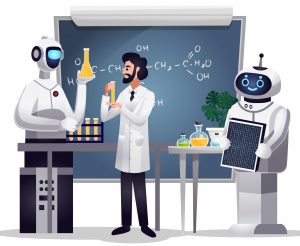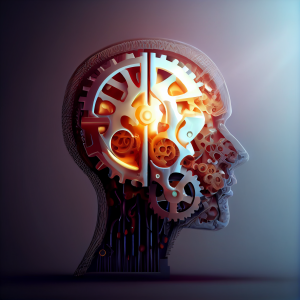
In a groundbreaking development, scientists have harnessed the power of AI to discover antibiotic. This discovery holds immense promise in the fight against a drug-resistant bacteria that poses a grave threat in hospitals and medical offices worldwide. By leveraging cutting-edge AI algorithms and innovative research techniques, researchers have uncovered a novel antibiotic named Abaucin, which exhibits remarkable efficacy in suppressing the growth of the resilient superbug Acinetobacter Baumannii. This extraordinary breakthrough, published in the esteemed journal Nature Chemical Biology, signifies a significant step forward in drug discovery.
Learn More: Machine Learning & AI for Healthcare in 2023
Let’s learn more about how AI has discovered a new antibiotic.
The Superbug Menace: Acinetobacter Baumannii
Acinetobacter Baumannii, a formidable Gram-negative pathogen, has become a notorious nosocomial threat, often exhibiting multidrug resistance. This bacteria poses a grave risk to vulnerable patients, particularly those in intensive care units, breathing machines, and undergoing surgeries. In 2017 alone, this drug-resistant bacterium infected a staggering 8,500 individuals in hospitals, claiming the lives of 700, as reported by the Centers for Disease Control and Prevention.
Harnessing the Power of Artificial Intelligence

Collaborating with esteemed researchers from the Broad Institute of MIT and Harvard, Jonathan Stokes spearheaded a mission to identify potential antibiotics to combat Acinetobacter Baumannii. In their tireless efforts, they employed an AI algorithm that showcased the ability to predict molecules capable of neutralizing this drug-resistant bacterium.
Also Read: Bridging the Gap: Drug Discovery and AI
A Breakthrough Discovery: Abaucin
Following an arduous screening process of 7,684 drugs and their active ingredients, the research team narrowed the candidates to 240 potential solutions. Through rigorous testing, they identified a molecule called RS102895, which exhibited exceptional potency against the superbug. Consequently, this molecule was aptly renamed Abaucin. AI’s discovery of antibiotic marks a significant milestone in the quest for an effective treatment.
Moving Toward Human Trials
While the preliminary findings of Abaucin’s efficacy require further validation through larger-scale studies, researchers express tremendous optimism regarding its potential. The project’s next phase involves optimizing the antibiotic’s chemical structure. Additionally, the research team aspires to conduct follow-up research involving larger animals, with the ultimate goal of eventually progressing to human trials, should Abaucin continue demonstrating its effectiveness.
AI Revolutionizes Drug Discovery

Integrating machine-learning techniques in the drug discovery process has revolutionized the field. Traditional high-throughput screening methods simultaneously allowed the evaluation of a few million drugs or chemical ingredients. However, with AI-driven algorithms, researchers can now assess hundreds of millions, or even billions, of drug molecules. This unparalleled capacity for screening presents exciting possibilities for identifying novel therapeutic agents in a fraction of the time it previously took.
Also Read: AI and Genetics: Discovery of Rare DNA Sequence
Beyond Bactericidal Abilities: A Multifaceted Approach
Developing a viable antibiotic extends beyond merely eradicating the bacterium. Ensuring human tolerance, efficient transportation to the infection site, and sustained efficacy are critical factors that demand attention. As Jonathan Stokes emphasizes, the drug must elicit an effect while being well-tolerated by the human body. Researchers remain dedicated to optimizing Abaucin to fulfill these essential criteria.
Our Say
With the aid of artificial intelligence, the scientific community has achieved an extraordinary milestone in the fight against drug-resistant bacteria. The discovery of Abaucin, a potential antibiotic to combat Acinetobacter Baumannii, holds immense promise for the future of medicine. As researchers continue to refine this groundbreaking treatment, the integration of AI in drug discovery processes.




